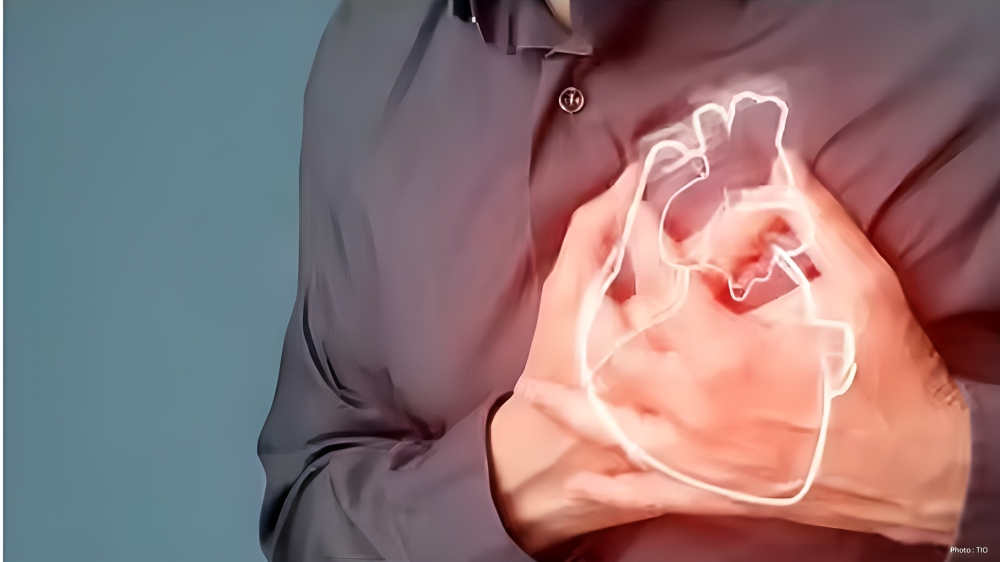You have not yet added any article to your bookmarks!

Join 10k+ people to get notified about new posts, news and tips.
Do not worry we don't spam!

Post by : Saif Rahman
Medical experts are urging individuals to recognize early indicators that their arteries might be blocked. Leading heart surgeons point out that arterial blockages are significant contributors to heart attacks and strokes, developing gradually and often without obvious symptoms initially. Timely detection can lead to effective treatments before they escalate into life-threatening situations.
Atherosclerosis, or blocked arteries, occurs as fatty deposits known as plaque accumulate within blood vessels, which transport oxygen-rich blood from the heart to the body. Narrowed or hardened arteries can slow blood flow, increasing pressure on the heart and other organs.
A distinguished cardiac surgeon highlighted that many people overlook subtle signs from their bodies, mistaking them for mild or temporary discomfort. Yet, these seemingly harmless signs could indicate serious issues brewing within. Here are six vital indicators everyone should monitor.
1. Chest Discomfort
The most prevalent signal of blocked arteries is chest discomfort, or angina, characterized by feelings of pressure or squeezing. Individuals often describe it as a weight pressing on their chest. This sensation typically arises during physical exertion or stress and tends to resolve with rest. Medical professionals emphasize the importance of addressing this symptom, as it may signify diminished blood flow to the heart.
2. Breathlessness
When the heart struggles to pump adequate blood through narrowed arteries, even simple tasks like walking can induce breathlessness. This happens as the heart fights to supply oxygen to the muscles, indicating strain on the heart.
3. Persistent Fatigue
Individuals with blocked arteries often report fatigue even after sufficient rest. Insufficient oxygen supply to the heart leads to lowered energy levels. Women are particularly prone to experiencing this symptom, which they might confuse with everyday tiredness or stress.
Pain Radiating to Neck, Jaw, or Arms
Pain linked to heart issues doesn’t always confine itself to the chest. It may also radiate to areas like the neck, jaw, shoulders, or arms due to shared nerve pathways with the heart. Experiencing such pain, particularly during physical activity, may indicate early blockages.
5. Cold Extremities
Blocked arteries in the limbs can lead to decreased blood flow, causing hands and feet to feel unusually cold or numb. In some instances, the skin may appear pale or bluish, signaling improper blood circulation.
6. Irregular Heart Rate or Dizziness
An irregular heartbeat, or arrhythmia, may occur when the heart struggles to pump blood effectively. Symptoms can include lightheadedness, dizziness, or faintness, indicating that the heart muscle might not be receiving enough oxygen due to blockages.
People may experience these symptoms gradually, and it’s possible not to notice all of them. Nonetheless, recognizing even a couple should prompt a visit to the doctor for a cardiac evaluation.
Heart scans or blood tests can help identify blockages early on. Treatment options may involve lifestyle adjustments, medication, or surgical interventions as necessary. Early detection greatly aids in managing and preventing potential heart attacks or strokes.
Experts furthermore highlight the importance of maintaining a healthy lifestyle. A balanced diet, abstaining from smoking, regular exercise, and monitoring blood pressure and cholesterol levels are crucial for clear arteries. Consuming high-fiber foods, fruits, vegetables, and whole grains can reduce plaque buildup, whereas sugary and fatty foods may heighten risk.
The surgeon also noted that stress is a hidden contributor to heart issues. Strategies to manage stress, such as meditation, sufficient sleep, and regular activity, are beneficial for heart health.
Often, individuals discover blocked arteries only after a significant cardiac event, which could have been averted with early intervention. Physicians recommend that everyone, particularly those aged over 40 or with a family history of heart disease, undergo periodic heart evaluations.
Heart disease stands as a leading cause of mortality globally, but awareness and preventive measures can save countless lives. Recognizing these six critical warning signs and responding swiftly can make a significant difference.










Indian Idol 3 Star Prashant Tamang Passes Away in His Sleep
Beloved singer-actor Prashant Tamang dies naturally in sleep. Fans and family pay emotional tributes

World No.1 Aryna Sabalenka Begins Australian Open Without Title Defence
World No.1 Aryna Sabalenka starts her Australian Open campaign as favourite, but without a defending

EU-India Free Trade Deal May Be Signed This Month, Says Merz
German Chancellor Merz hints at a possible EU-India free trade agreement signing by January end afte

Japan Expands Security Aid Across Southeast Asia with $147M Boost
Japan doubles OSA budget to $147M, expanding military support to ASEAN nations, boosting regional se

Eruption of Mount Semeru: Pyroclastic Flow Extends 5 km, Ash Clouds Reach 2 km
Mount Semeru erupted at 10:25 p.m., producing a 5 km pyroclastic flow and a 2 km high ash column. Re

Deadly Bushfires in Victoria Leave One Dead, 300 Structures Lost
Bushfires across Victoria have destroyed hundreds of homes, claimed one life, and forced evacuations